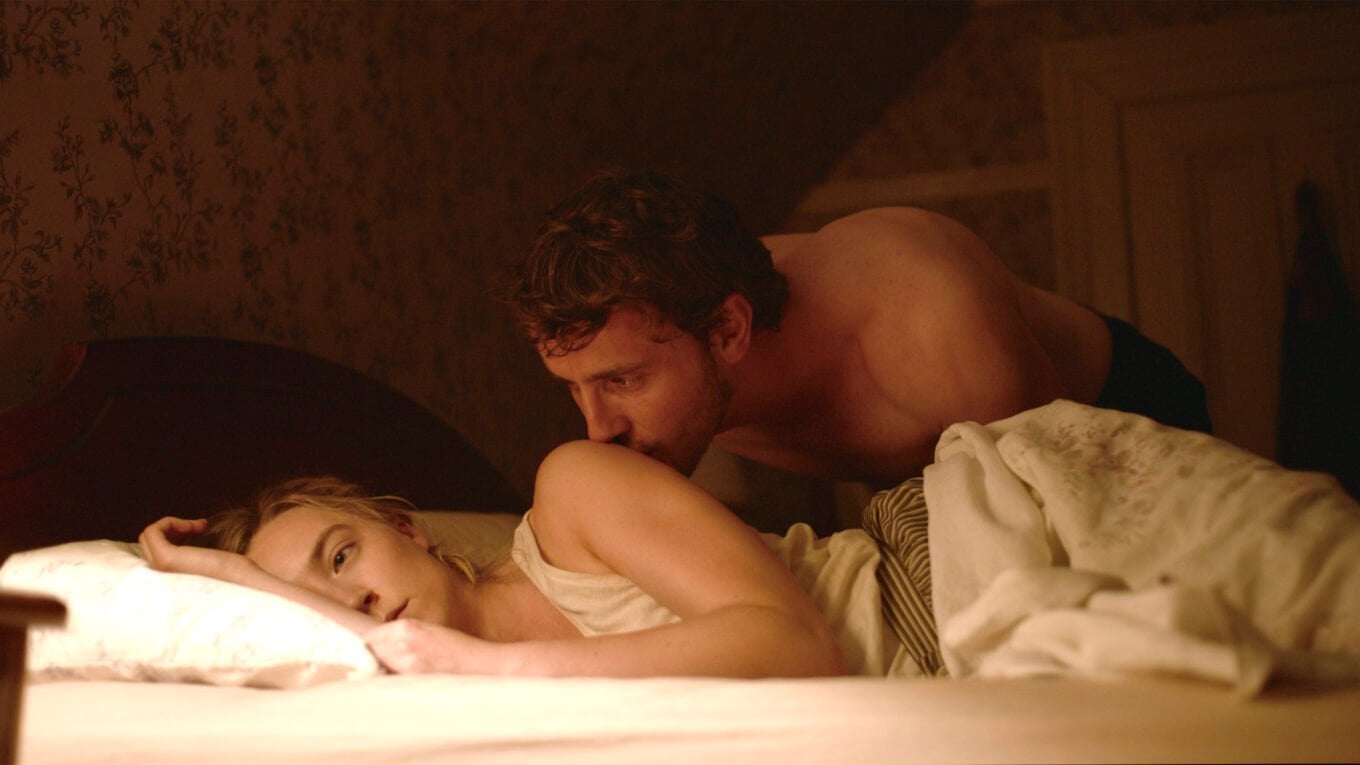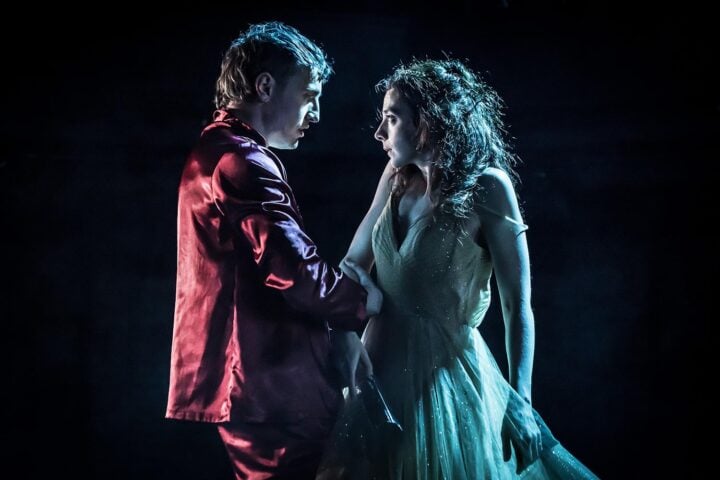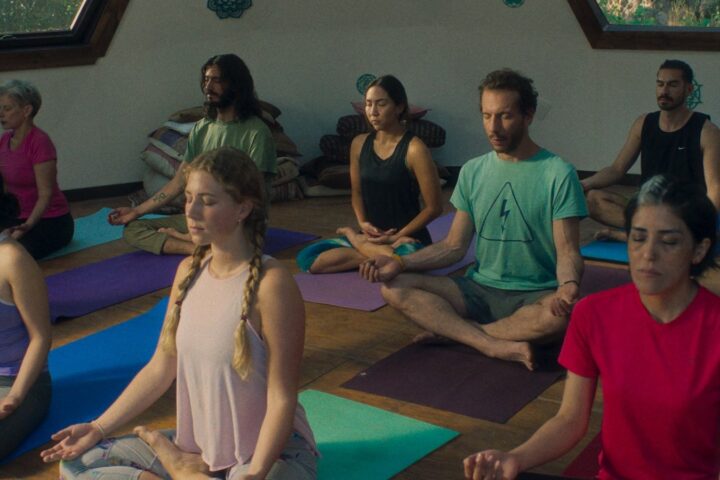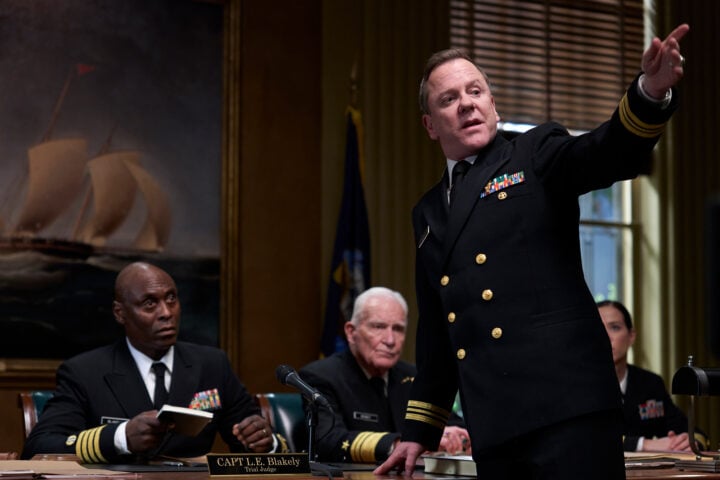At every turn, Garth Davis’s Foe not only fails to adequately redress or rework played-out tropes within its high-concept world, but its examination of marriage and identity is also hackneyed. Written by Davis and Iain Reid, this sci-fi chamber piece feels Frankensteined together, each limb a reminder of more heartbreaking, wondrous, or sophisticated works that reconciling with the end of the world and the fragility of human relationships.
In the dystopia of Foe, new “self-determinative” lifeforms are conceived to take on dirty work in a ravaged land. They’re first introduced to us as an idea via the opening title card, which informs us that Earth’s natural and fertile resources, like water and soil, will become rare and valuable commodities later this century. Then they’re presented as the solution to marital loneliness, such as in the case of Junior (Paul Mescal) being drafted to try a government-funded space station out as a new home while his wife, Henrietta (Saoirse Ronan), stays behind on their farm.
In the future, this new form of artificial intelligence will find work particularly in the most ravaged places on the planet, like on a farm in “the Midwest,” as the film tells us with no specificity. But Junior doesn’t want to leave, and his relationship with Henrietta, it’s implied, has been on the rocks for years. When a government agent named Terrance (Aaron Pierre) is sent to interview the two so that the A.I. can slip in naturally when the real Junior is absent and in space, this third party further sows seeds of unrest within their marriage.
Foe’s broader premise isn’t to blame exactly. This notion of the fear of being replaced, especially in the context of a relationship and the uncertainty about one’s selfhood, is compelling in its universality. But Foe’s screenplay is so rotely written that its clichés come to feel like a virus that spreads to every other component of the film. The desolate exteriors are photographed in ever-swirling motions, the infinite stretches of desert suggesting as much a knockoff of a Terrence Malick film as an AppleTV screensaver. “Isn’t it strange how dying can be beautiful?” Henrietta offers at one point, post-coitus, inside what looks like a dilapidated greenhouse.
Foe is effectively a three hander, with Terrance functioning as a catalyst for Junior and Henrietta to more deeply re-examine their relationship as it was, is, and could be. But the script’s dialogue does punishing work trying to convey the nuances of a failing relationship at the end of the world. As Terrance acts as draft officer, therapist, and agitator all at once, he probes the couple with question after question about what’s missing from their lives, what was once there, and what’s been placed in the absence of other more desirable components.

These interviews with Junior, which are meant to prepare his A.I. doppelganger to replace him by feeding it the real Junior’s memories and feelings, are especially grueling for him, as he learns just how unhappy Henrietta is. And these interviews, and the suspicion that Terrance is simply there to cuckold him, trigger Junior’s violent outbursts and unlock his existential malaise about being trapped in the middle of nowhere with a bad job and a resentful wife.
But it’s difficult to muster empathy for a character so thinly written as Junior, as the dialogue can’t find a way to approximate the brutality of his actions or the emptiness of his feelings. Ronan and Mescal do have chemistry, as evinced by their easy laughter and the electric daggers in their glances toward one another, and their magnetic presences lend some stakes to the film’s premise. But their talents are wasted here—so much so that it’s easy to imagine the two in a better film. Maybe in something by Edward Albee or Wendy Wasserstein that indulges in adroit language and intricate personal dynamics that the two could sink their teeth into.
In Foe, the three leads have to make due with triteness soundtracked for some reason by midcentury pop songs. The interviews Terrance subjects Junior to are supposed to be intense and intrusive, but Pierre still remains stiff like a robot even around someone as magnetic as Mescal. Given how physical they get with one another, and how intimate they must be with one another in order to fully examine Junior’s life and relationship, with Terrence lording his power over Junior, it’s frustrating for that tension to remain un-interrogated. The line between masculine envy and desire is, as many filmmakers like Claire Denis and Luchino Visconti have pointed out, razor thin, but you wouldn’t know it from Davis’s film.
As doppelgangers, climate catastrophe, and A.I. continue to proliferate at as an alarming rate in fiction as in reality, Foe isn’t unique enough to distinguish itself from other explorations of falling into the uncanny valley. It suggests a bad copy of A.I.: Artificial Intelligence, multiple episodes of Black Mirror, and The One I Love. In essence, Foe’s worst enemy is itself.
Since 2001, we've brought you uncompromising, candid takes on the world of film, music, television, video games, theater, and more. Independently owned and operated publications like Slant have been hit hard in recent years, but we’re committed to keeping our content free and accessible—meaning no paywalls or fees.
If you like what we do, please consider subscribing to our Patreon or making a donation.






